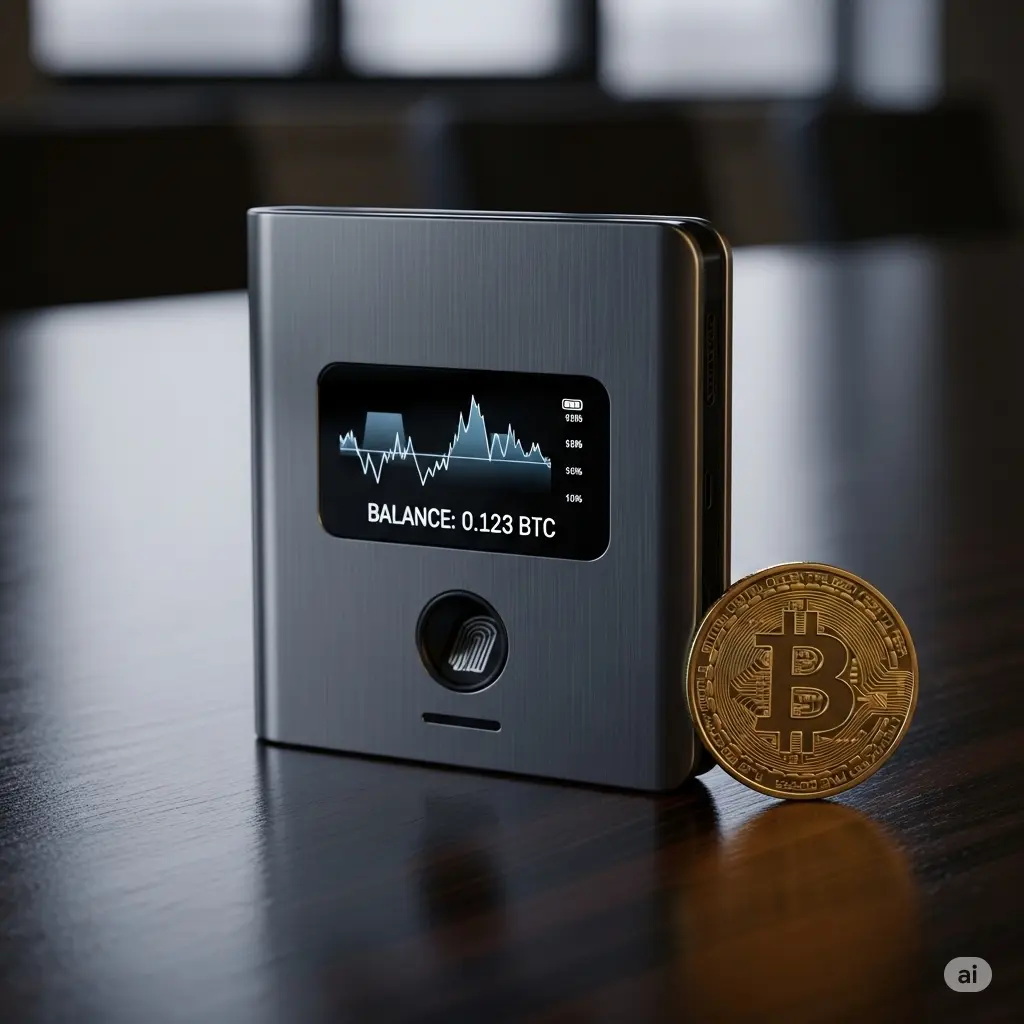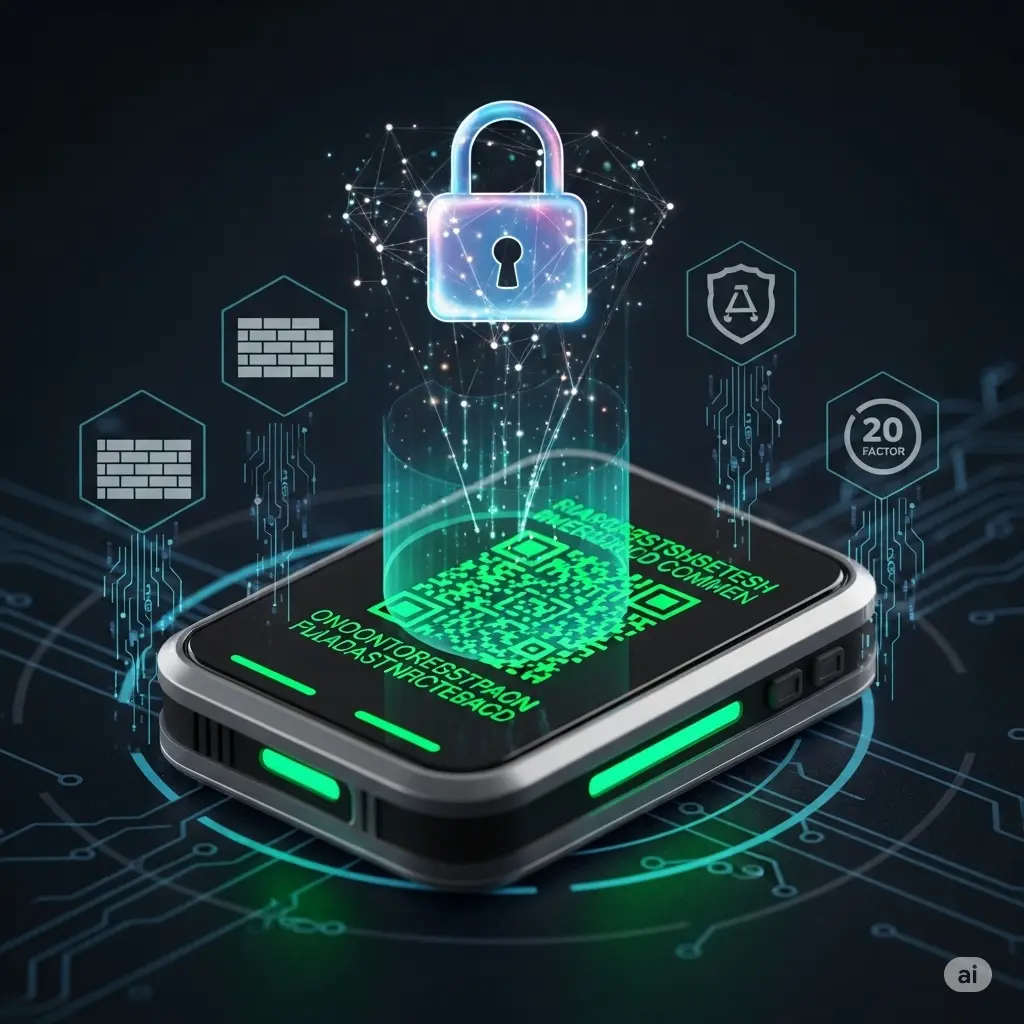Secure Crypto Wallet | Power‑Packed Security
A Secure Crypto Wallet safeguards your digital assets from theft, hacks, and loss by combining advanced encryption, smart design, and user caution. Whether you choose a cold wallet or hot wallet, hardware, mobile, or decentralized solution, you’ll enjoy Power‑Packed Security for All Coins—with the right steps and knowledge.
Let’s dive into a true guidebook on how to keep your crypto safe—Fresh, friendly, and full of real‑world tips!
1. What Is a Secure Crypto Wallet?
Cryptocurrency wallets are digital tools that let you store, manage, and transfer crypto. A Secure Crypto Wallet ensures your private keys stay safe. You control your assets—not a third party. It can be:
- A cold wallet (offline, like hardware devices or paper),
- A hot wallet (online, including desktop, mobile, or web apps),
- A decentralized wallet (peer‑to‑peer, no custodian).

You may hear terms like hardware wallet, mobile wallet, seed phrase, or wallet backup. Together, these ensure your crypto stays secure and accessible only by you.
2. Global Crypto Sports and Wallet Security
On Global Crypto Sports, readers depend on up‑to‑date, trustworthy content. That’s why we emphasize crypto wallet security. When you read us, you expect clarity and reliability. We share tips that work for everyday users and seasoned traders alike.
We’re committed to building trust. Thus, we Backably showcase:
- Transparent guidance,
- Real brand recommendations,
- Step‑by‑step instructions,
- Clear cost‑benefit comparisons.
This builds loyalty—readers know they can depend on our guides.
3. Types of Best Crypto Wallet 2025 Options
3.1 Hardware Wallet (a form of cold wallet)
A hardware wallet is a physical device that stores your crypto’s private keys offline. It’s typically a USB stick. This option offers top‑level protection.
Why choose it?
- Air‑gapped—never touches the internet.
- Immune to phishing and malware.
- Compatible with many coins.
Real tips:
- Always buy directly from the manufacturer to avoid tampering.
- Never share the PIN or recovery seed phrase.
- Store the device and backup separately—perhaps in a safe.
3.2 Mobile Wallet (a kind of hot wallet)
Mobile wallets are apps installed on your phone. They’re aimed at everyday use and convenience.
Benefits:
- Instant access to funds.
- Easy for quick transfers and check‑ins.
- Useful for managing decentralized wallet apps like MetaMask Mobile.
Security advice:
- Use brands you trust and enable biometric lock (fingerprint/Face ID).
- Don’t download from third‑party app stores.
- Regularly update the app and OS.
- Backup your seed phrase offline.
3.3 Desktop/Desktop Clients (hot wallet)
Desktop clients run on your computer. They can be full nodes or lightweight wallets.
Advantages:
- Larger screen, more features.
- Can integrate with hardware devices.
- Often better security than mobile, but still online.
Protect yourself by:
- Keeping antivirus software active.
- Using separate user accounts.
- Backing up wallet files securely.
3.4 Web Wallets (hot wallet)
Accessible via browsers—examples include exchange‑hosted wallets or DeFi dashboards.
Simple to use—but risky:
- Susceptible to hacks and phishing.
- Avoid storing coins long‑term.
Better practices:
- Enable 2FA (two‑factor authentication).
- Use only trusted platforms.
- Withdraw assets to your secure wallet after transactions.
3.5 Decentralized Wallet (also typically hot wallet)
A decentralized wallet doesn’t rely on a central server. You control the keys. It may be mobile, browser‑based, or desktop.
Perks:
- Complete control.
- Built‑in compatibility with DeFi and NFTs.
- Often open‑source and transparent.
Be cautious by:
- Verifying the website address and authenticity.
- Keeping your seed phrase safe.
- Reviewing transaction details before approving.
4. Seed Phrase & Wallet Backup: Your Lifeline
Even the strongest wallet fails if your seed phrase isn’t protected. A seed phrase is a set of words (e.g., 12, 18, or 24) that regenerates your wallet.
Key best practices:
- Write it down physically—no screenshots, no cloud.
- Store multiple copies in secure places (e.g., safe or bank deposit box).
- Never share it with anyone.
- Consider metal backups to guard against fire, water, and time.
If someone has your seed phrase, they have your funds!
5. Security Best Practices & Crypto Wallet Security
- Use a mix of wallets: Keep a portion in a hardware wallet (offline) and a small balance in a mobile wallet for spending.
- Enable passphrase protection where available.
- Keep firmware and software updated. Even hardware wallets need updates.
- Segment your coins: Use a secure wallet for long‑term holdings, a hot wallet for daily transfers.
- Avoid phishing scams: Always confirm the URL and avoid links from strangers.
- Enable multi‑signatures if managing large funds.
- Test recovery: Practice restoring from backup in a clean environment.
- Use meaningful labels in your wallet to track accounts safely.
- Be security‑aware when traveling: Avoid public Wi‑Fi when using hot wallets.
- Stay informed: Read trustworthy platforms like Global Crypto Sports for news and alerts.

6. Where Wallet Types Shine
Let’s highlight use cases like a travel‑guide itinerary, but for wallets:
Destination A: Long‑Term Holding Hills
- Ideal spot: hardware wallet.
- Benefits: ultimate offline safety.
- Tip: Use stainless steel backup at home or a safety deposit.
Destination B: Daily Spending Beach
- Ideal: mobile wallet.
- Benefits: instant transactions.
- Tip: keep only small amounts. Use biometric locks.
Destination C: Trading Plaza (DeFi, exchange)
- Ideal: web wallet or decentralized wallet with tight security.
- Benefits: ease of fund movement.
- Tip: Always enable 2FA and move funds back to a cold wallet after trading.
Destination D: Advanced Fortress Estate
- Ideal: multi‑sig, hardware combos, or enterprise wallets.
- Benefits: joint control and ultra security.
- Tip: split keys among trusted individuals or locations.
7. FAQs
Q1: Which is the best crypto wallet 2025?
There’s no one‑size‑fits‑all. A hardware wallet is generally the most secure long‑term. For daily use, a reputable mobile wallet works. Choose based on your habits and coin types.
Q2: Can I lose my crypto if I lose my seed phrase?
Yes. Without the seed phrase, you cannot recover the wallet. Always back it up securely.
Q3: Is a cold wallet always safer than a hot wallet?
Yes, because it’s offline. However, poor handling of hardware or backups still risks loss.
Q4: Are mobile wallets safe?
They’re safe if you follow best practices: trusted apps, app permissions, backups. Still, they’re riskier than cold wallets.
Q5: What’s a decentralized wallet?
A wallet where you alone control your keys—no central server. It’s compatible with DeFi and self‑custody systems.
8. Common Myths & Realities
- Myth: “Hardware wallets are unhackable.”
Reality: They’re highly secure, but still vulnerable to physical tampering or supply‑chain attacks. - Myth: “Hot wallets are inherently insecure.”
Reality: Many hot wallets are safe if used correctly—with strong passwords, updates, and backups. - Myth: “Seed phrases are invincible.”
Reality: They’re fragile. If you lose or leak them, your assets are gone. - Myth: “I don’t need backups if I’ve got a hardware wallet.”
Reality: You still need backup of the seed phrase. Hardware can fail or be lost.
9. Branding & Trust-Building
At Global Crypto Sports, we understand the importance of security. That’s why we recommend wallets tested by experts, backed by audits, and praised by users for both safety and usability.
We double-check our sources. We encourage community feedback. We update guides as threats evolve. We earn your trust by staying clear, practical, and dependable.
10. Step-by-Step Setup Guide: Example Using a Hardware Wallet
Let’s take a real‑world example—setting up a hardware Secure Crypto Wallet:
- Order from the manufacturer’s website.
- When it arrives, verify the hologram or security seal.
- Plug it in and follow the on‑screen guide to create a new wallet.
- Write down your seed phrase on the included card.
- Double-check each word; store backup in another safe location.
- Set a PIN code—don’t use obvious numbers.
- Optionally add an extra passphrase for enhanced security.
- Install the official companion software on your computer.
- Transfer a small test amount—confirm wallet works.
- Then, send larger amounts and consider splitting across lots or accounts.
11. Real Tips & Lists
- Avoid common mistakes:
- Never take a screenshot of your seed phrase.
- Don’t store it digitally.
- Don’t reuse passwords.
- Don’t ignore firmware updates.
- Don’t trust random browser extensions.
- Top wallet choices (based on trust & popularity):
- Brand X hardware wallet (audit-backed, open source, supports many coins).
- Brand Y mobile wallet (biometric, DeFi friendly).
- Brand Z decentralized wallet (cross-platform, encrypted backups).
- Backup checklist:
- Primary written copy in safe.
- Duplicate in separate safe.
- Metal backup for harsh conditions.
- Test recovery occasionally.
- Security checklist:
- Hardware firmware updated.
- Mobile app updated.
- Antivirus active.
- No suspicious links clicked.
- Phishing signs avoided.
- Password manager in use.
12. Summary & Final Thoughts
A Secure Crypto Wallet means combining smart tools with responsible habits:
- Choose wisely: hardware wallet for long‑term safety, mobile or decentralized wallet for flexible access.
- Safeguard your seed phrase—it’s your lifeline.
- Use proper wallet backups and test your recovery.
- Mix cold and hot wallets for balance.
- Stay vigilant—update, verify, and protect.
With these practices, you’ll enjoy power‑packed security for all coins—whether Bitcoin, Ethereum, or any altcoin that matters. Let Global Crypto Sports guide you with clarity and confidence.
